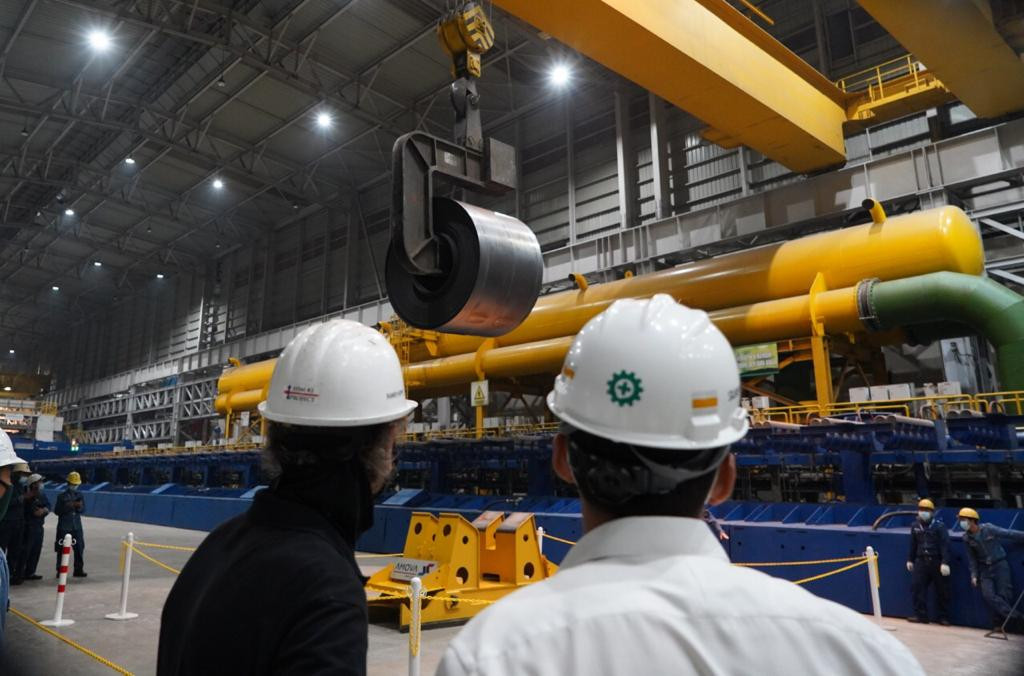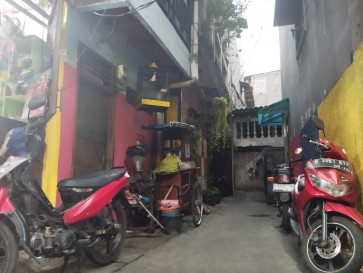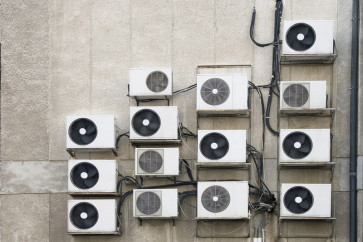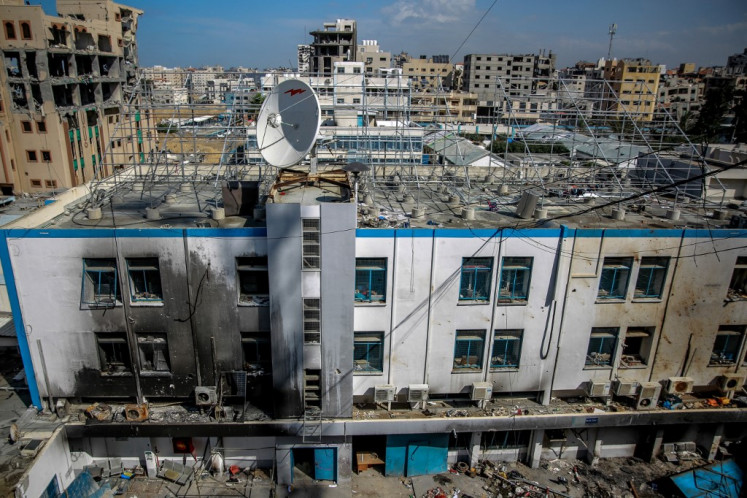Domestic Ramadan demand sustains RI manufacturing rally
Rise in production is followed by expansion in manpower use.
Change Size

I
ndonesia’s manufacturing sector continued to expand in March as improved demand led to higher production among firms surveyed for S&P Global’s purchasing managers’ index (PMI).
The March PMI compiled by the financial analytics company was up 0.7 points from the preceding month at 51.9, making for 19 consecutive months of expansion and marking the fastest monthly increase since September 2022.
Alongside the higher production, firms reported renewed backlogs of orders as well as increases in input purchases and hiring.
“Although the level of business confidence improved, it remains a distance from the historical average,” said S&P Global Market Intelligence economics associate director Jingyi Pan in a press statement released on Monday.
“It will be important to see demand growth sustained to support further improvements in manufacturing performance,” she added.
The PMI surveys purchasing executives from some 400 manufacturing companies to determine whether business conditions have improved, stagnated or declined.
Indonesia’s manufacturing PMI has been stronger than a number of its manufacturing peers, with China at 50, the United States at 49.3 and ASEAN countries as a whole at 51 for the same period in March.
Alongside the expansion in demand, the level of outstanding work has risen further and stronger new orders have placed pressure on firms’ capacities.
In response, Indonesian manufacturers increased their workforce for the second month in a row in March, although by a small increment.
“Supply pressures became more manageable as suppliers’ delivery times shortened while input price inflation remained below the 12-month average,” noted Pan, accounting for the improved conditions.
“At the same time, selling prices increased at the slowest rate since November 2020 which bodes well for continued easing of overall inflationary pressures in Indonesia,” she added.
Despite the March expansion, S&P noted that Indonesian manufacturers continued to see new export orders decline amid weaker market conditions abroad, although the reduction had moderated from February’s figure.
Read also: Manufacturing closes 2022 on high note, opens 2023 upbeat
Chief economist of publicly listed Bank Permata, Josua Pardede, attributed the stronger PMI to Ramadan and Idul Fitri, as industry players anticipated increases in local demand.
“Improved economic expectations along with the relaxation of mobility restrictions during this year’s Ramadan and Idul Fitri have pushed manufacturers to increase their production activity,” Josua told The Jakarta Post on Monday.
Indonesian manufacturers acquired inputs at much faster rates in March, both to meet ongoing production requirements and to prepare for further increases in demand. Input purchases expanded at the highest rate since August 2022, S&P observed.
Post-production inventory levels remained mostly unchanged in March as higher inflows of finished goods were matched by higher outflows.
Read also: Factory output hit by falling demand
Meanwhile, the Industry Ministry’s Industry Confidence Index (IKI), which measures parameters similar to the manufacturing PMI but uses different methods, showed that manufacturers’ confidence decreased slightly from February to March but remained in the realm of expansion.
The ministry said March’s IKI was 51.87, marking a 0.45-point decrease from February’s 52.32.
S&P’s PMI calculation consists of five variables: new orders, output, employment, suppliers’ delivery times and stocks of purchases. The IKI’s variables are new orders, production volume and stocks.
“The dwindling IKI was caused by a decreased average IKI in nine subsectors, which contracted by 2.97 [points], which was bigger than the increase in the 14 subsectors that expanded by 1.97 [points],” said Industry Ministry spokesperson Febri Hendri Antoni Arif at a Friday press briefing, as quoted by Antara.
Febri added that domestic orders were the dominant factor affecting new orders and that such orders, in turn, heavily influenced production volume and stocks.
Meanwhile, Permata’s Josua noted that domestic demand was relatively good in March but demand for exports had been disrupted by a global economic downturn and high inflation.
“We see that diversification in export markets and utilization of domestic economic recovery could increase local manufacturing industry performance,” Josua said.









